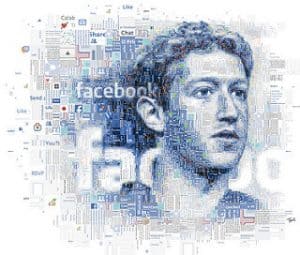Sometimes a business owner’s brand is as hot a commodity as the business itself. This has been true at least since the days of Henry Ford, and in today’s information-heavy environment leaders like Bill Gates and Steve Jobs are as well-known as the companies they started. How do founder mythologies become part of the cultural landscape, and how do these men and women grow into such larger-than-life figures? There are several factors at play.

People Relate to Individuals
A company that is represented by a human face is easier for us to connect with on a personal level than one that is represented by a logo. Companies sometimes create fictional spokespeople like Kentucky Fried Chicken’s Colonel Sanders or Progressive Insurance’s Flo to build that human connection. But a real human being at the heart of the enterprise gives a more genuine connection and hints at a true story that piques our interest in the company.
Founders Are Interesting People
People who start and develop sizable companies tend to be larger-than-life characters. They are strong-willed, creative, intelligent, and often quirky. Their quests to build businesses become epic adventures, which is why Mark Zuckerberg’s creation of Facebook was worthy of a feature film. Their lives are as enthralling as any celebrity — like when pharmaceutical tycoon Daryl Katz bought a storied Bel-Air mansion or when Wells Fargo CEO John Stumpf sat before a Senate committee and was encouraged to resign by Elizabeth Warren.
Brand-Conscious Leaders Are Visible
Leaders who are willing to step out in front of their brands are engaged with the public under their own name, not just the name of their company. Celebrity founders maintain a consistent “voice” and presence across social media channels, positioning themselves where people can get to know them on Twitter, Facebook, Instagram, and other networks. They don’t just speak at conferences where industry insiders can see them; they give TEDx talks, write books about their leadership strategies, and comment on current events for news programs. This visibility across multiple channels helps the public get to know them as people and associate them with the companies they’ve started.
Consistency Builds Trust
A founder’s brand doesn’t need to be perfect, as long as it’s well-defined and constant. Not everyone loves Steve Jobs or Bill Gates, but they were both so consistent over the years that even those who didn’t like them felt like they knew them well. Celebrity CEOs know what they stand for, and they send consistent messages through their personal brands and their corporate entities. Warren Buffett has always represented solid value-based investing, Steve Jobs represented innovation, and Mark Zuckerberg represents the millennial generation and social media connectedness.
Companies benefit from showcasing a CEO who is strongly branded and highly visible. When people feel like they know and trust the founder of a company, they feel a certain loyalty to the label as well. The trend of the celebrity CEO and founder mythology is gaining steam, thanks to the high visibility offered by social media and internet publishing, and personal brands of leaders are likely to become an even bigger factor in business going forward.



